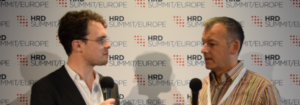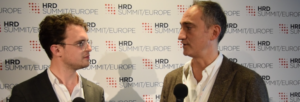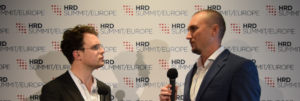HRD: A Virtual Experience EU - event summary - Twitter, Siemens, Christian Dior, and more
- 9 Min Read
On October 28th 2020, we returned with HRD: A Virtual Experience – Forging Collaborative Cultures, the fourth installment of our virtual event series. This 100% online event boasted another packed agenda adorned with influential speakers and industry-leading brands. For those who couldn’t make it, here are our highlights from the day.
- Author: HRD Connect
- Date published: Nov 4, 2020
- Categories
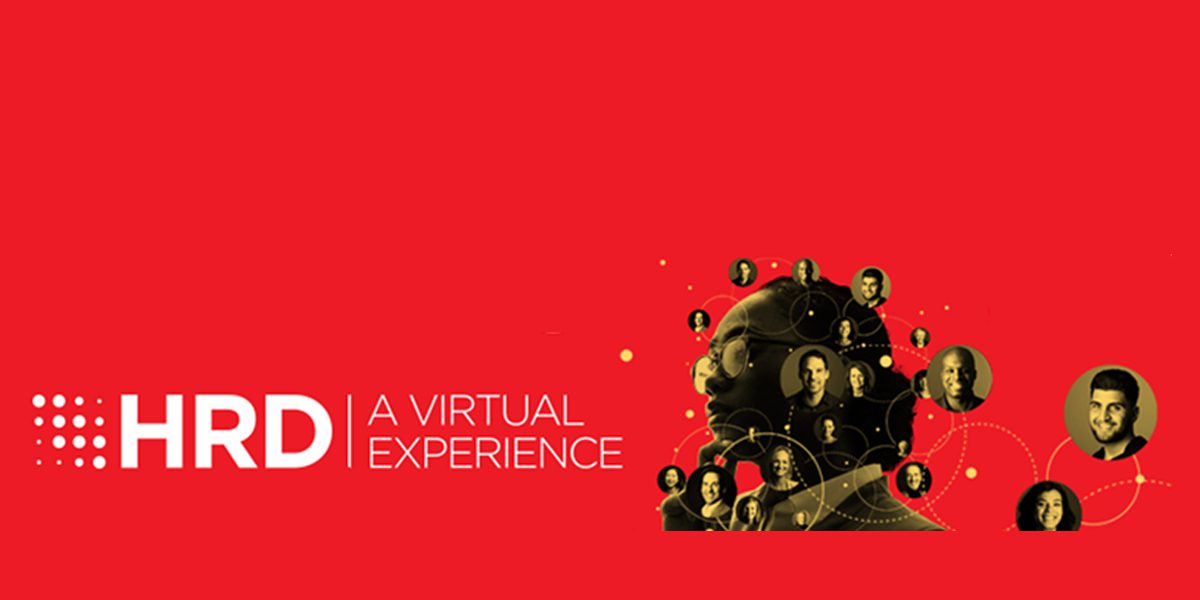
With many of the world’s major regions now enduring a second wave of COVID-19, it may be time to accept that ‘post-pandemic’ is not a term that should feature in the corporate vocabulary just yet. This said, in order for businesses to continue striving for success, the HR function must persevere through the disruption.
This is a principle that lies at the very heart of what we do at HRD, and that’s why we made haste in returning for the fourth installment of our new virtual HR event series. This time, with the need to reinstate healthy, authentic collaboration being desperately felt by businesses the world over, our official tagline was Forging Collaborate Cultures.
As always, in order to deliver the the level of organic, actionable insight for which our conferences are famed, we employed a wide array of influential speakers from reputable brands, and saw thousands of delegates pour through the virtual gates to attend.
If you were unable to attend on the day or simply need a recap, here are some highlights and top takeaways from the day’s program.
Keynote: Transformation through Disruption – Christian Busch
If you’ve been plugged into the corporate dialogue since the onset of the pandemic, it’s likely that you’ve heard the phrase ‘never let a good crisis go to waste’ more than a few times by now. Though this has become something of a cliche at this point, there’s an undeniable element of truth to it, and that’s precisely why Christian Busch based his keynote session on the notion of harnessing disruption.
As a professor and the best-selling author of The Serendipity Mindset, Christian was able to bring a unique expertise to the table, exploring how you can build your organisation’s innovative muscles and create mindsets for productive change.
“How do we use the science of serendipity to increase innovation impact in our lives, our companies, and more broadly in society?”, he queried, laying the foundation for his session by riffing on one of his book’s core themes, and going on to state that “the most purpose-driven and successful companies seem to have something in common: they all intuitively cultivated serendipity”.
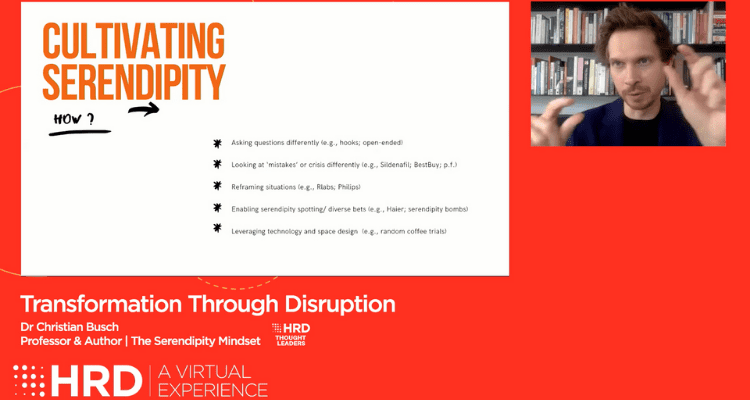
Though perhaps an seemingly dubious concept to lean on from a business perspective, Busch was able to seamlessly translate this into a relatable, topical challenge that exists in the corporate world. He explained that a successful company should have the ability to seize something unexpected and turn it into a positive outcome; something that every organisation is currently grappling with in the midst of COVID-19.
Busch elaborated on this principle throughout this presentation. He ran through some of the challenges that may be encountered in the business world, outlined how serendipity can be found in these instances and ultimately converted into opportunity, and finally, how the organisation can benefit as a result.
“Serendipity is all about potentiality,” said Busch as he brought his session to a close. “It’s about what could emerge if we develop both the mindset and more importantly the tools that enable people and companies to be their best selves and really explore their potential.”
Panel: Reimagining the Workplace and the Role of HR – Pymetrics, Tata Steel, Roche, Finastra
A session format that has truly come to life since HRD’s pivot to virtual events has been panel discussions, and so it was a foregone conclusion that we would arrange two more for this event.
Joining us for our first of the day were Thomas Loumann (HRD Commercial, Tata Steel), Nebel Crowhust (People and Culture Director, Roche) and Claire Sherwin (HR Director, Talent Acquisition, HR Ops and Technology). Pymetrics CEO Frida Polli also joined us to help moderate the discussion and weigh in with her own expertise from time to time.
During this session, our panel reflected on what is arguably the most poignant challenge in the world of HR at present: how the role of the HR function and the workplace in general is changing, and how to drive the organisation forward during this time.
In order to create both a solid springboard for discussion and also a more interactive feel, we felt this session presented a great opportunity to defer to the audience and hold some polls. In the first, we posed the question: ‘What is the plan for your workplace in 2021?’
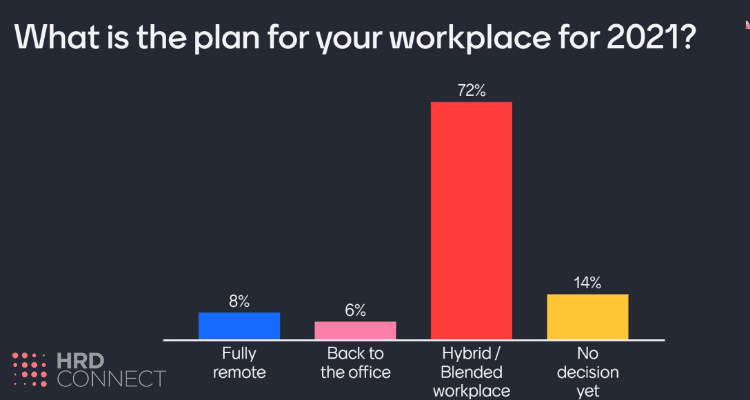
Somewhat unsurprisingly, we found that nearly 3/4 of our audience plan to implement a hybrid or blended workplace model in 2021, combining both co-located and remote working in a more flexible approach.
Crowhurst said: “I think it’s positive that so many organisations are looking at this approach. This is where the role of HR really comes in; we should be pioneering this kind of thing and encouraging teams to work and operate in different ways.”
Sherwin went on to offer a similar sentiment, emphasising the importance of co-located collaboration, but acknowledging that one cannot expect this to be a permanent fixture anymore. “We do believe in the ‘beehive’ collaboration that’s created within an office space, and therefore we’re looking at how we can reconfigure our offices,” she said. “We’ve proven that people can do their day-to-day jobs from home, but the question now is, how do we create this space where people can come in occasionally and collaborate?”
Next, we dug a little deeper into the specifics, questioning which factor in particular will have the most impact on how the audience’s organisations will work in the future. Though a clear winner emerged once again, we saw more dispersion in the responses.
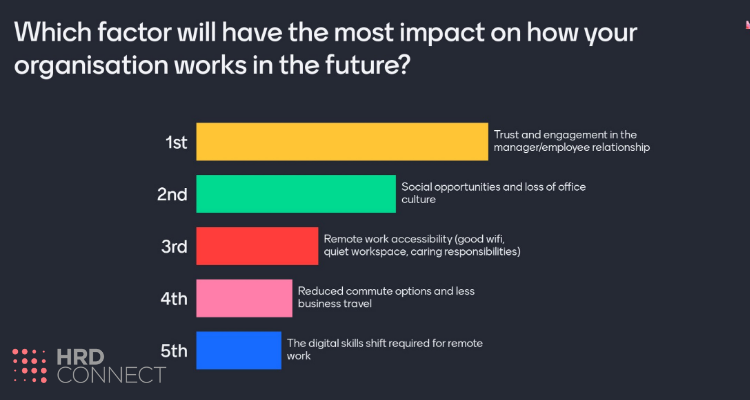
Once again this was reflected in the comments of the panel. Sherwin said: “We’re now taking the opportunity to step back, listen to our employee and understand and embed the trust that we’ve created in the organisation. The employee base and the leaders have proven that they can work in a trust-based environment.”
“It’s about trust, and trust comes from looking at where we’re going, how we’re doing, and being open, honest and transparent in doing so,” elaborating on Tata Steel’s traditionally very hierarchical employee structure, and how the company has thrived in recent times as a result of flattening it out and becoming more agile.
Panel: Engaging Through Fatigue – Intu, Everis, Discovery
This time moderated by Perry Timms, Chief Energy Officer, PTHR, and the event’s official chair, our second panel of the day boasted another lineup of influential brands and equally influential speakers: James Saunders (CPO, Intu), Dina Alvarez (Head of Culture & Talent, Everis) and Camille Burrows (Group VP, Learning & Development, Discover).
For this session, the topic of discussion was engagement, and in particular, the dwindling nature of it as a result of COVID-19, and how organisations can rediscover it in order to achieve success. Once again, being a more open and interactive format by nature, we opted to supplement the dialogue with the audience’s input, posing two more online polls. For the first, we asked audiences to select their top priority for renewing energy within their organisations as they head into 2020.
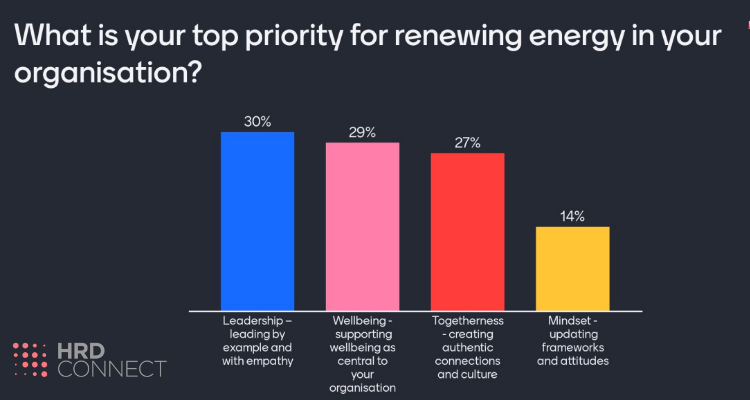
Similarly, but in slightly different fashion, we then requested that audience members submit a word that they felt best represented how they plan to renew energy within their organisations. The results were automatically depicted in a computer generated image, and some key trends were immediately clear.
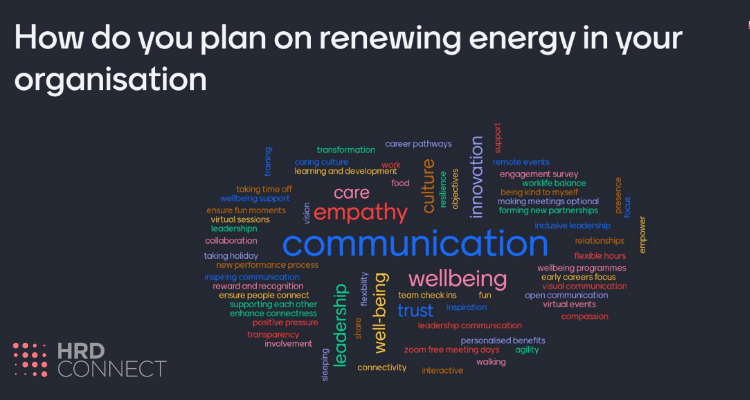
Once again, the panel engaged in dialogue around some of the themes that were present in the poll results. For instance, wellbeing unsurprisingly played a major part in this dialogue, with Alvarez passing comment on how Everis approaches this topic.
“For us, wellbeing is a holistic concept,” she said. “It’s not just about yoga class or looking after the body – when we think about how we can help people through wellbeing, we think about a sense of meaning and purpose, and something that is bigger than themselves. It’s about growing, evolving, and feeling a sense of achievement.”
Burrows built on this idea, providing some insight as to how leaders can communicate an organisation’s wellbeing strategy. She said: “You have to meet people where they are. We like to use language that people are comfortable with and that works for them.
“We’ve also weaved it into things without being overly explicit about it, and what we’ve found is that it really resonated with people. When you do it naturally, it tends to be more comfortable and ultimately more effective.”
Saunders rounded off this particular topic by discussing how leaders can energise and motivate teams by empowering them to navigate through the disruption. He said: “Its about equipping individuals by first helping them to identify what their goals are and how they can bring their horizon into focus.
“Then, you’re focusing on the things that are in your control that you can make decisions on, and ultimately creating that culture of ownership.”
Keynote: Building Culture and Community – Twitter
Finally, we were thrilled that Twitter CHRO Jennifer Christie was able to reprise her role as a HRD: A Virtual Experience keynote speaker, and once again provide valuable insight to our audience. This time, Christie’s focus was on rebuilding culture; a topic that has dominated the COVID-19 dialogue within the HR and business space.
Christie’s presentation took the form of a case study of her own organisation and it’s 5,200 employees, outlining its ‘Global Blueprint’ initiative for future-proofing the organisation.
She said: “We knew that our orientation and the way we were attracting talent was not going to be the way that we retained talent going into the future. So, we took a step back.”

She went on to explain that, from a talent perspective, this was about retaining talent. hiring the best people with a location-agnostic mindset, decentralising the workforce, and expanding the company’s geographic mindset.
“We needed to move to being an organisation that was comfortable working asynchronously across locations, time zones and distributed teams,” she said.
Christie concluded by acknowledging that, in today’s business world, the needs of different employees need to be embraced.
She said: “In the future, we’re not going to from this to a fully remote organisation. Most of our employees are going to want to split their time between home and the office
“So, that means we’re obsessing right now about a shared experience across locations.”


